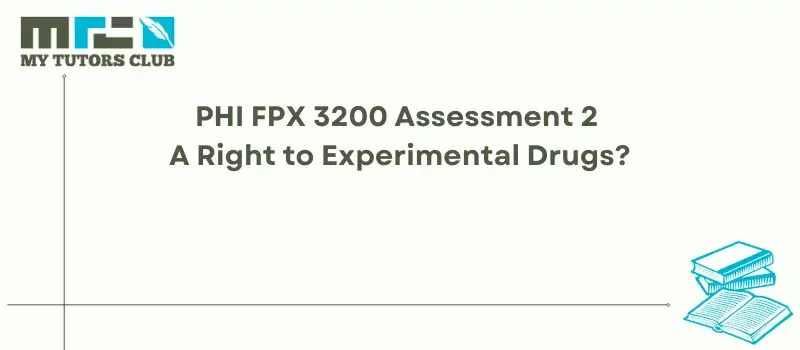A Historical Perspective on Experimental Drugs
Before the 1906 Unadulterated Food and Medication Act, drugs were generally showcased with promises of marvelous fixes, frequently without logical proof or worry for public wellbeing. This legislation denoted a defining moment, establishing the Food and Medication Administration (FDA) to safeguard purchasers from mislabeled or dangerous medications and food. Quick forward to 2018, the Option to Attempt Act was endorsed into regulation (Mahant, 2020). This legislation engages doctors to endorse trial treatments not yet FDA-supported to at death’s door patients. While this offers desire to many, it raises complex moral inquiries regarding informed assent, patient security, and the harmony between advantages and risks.
Ethical and Moral Principles Surrounding the “Right to Try” Act
Justice and Accessibility
The standard of equity supports humane use programs. These drives intend to give evenhanded admittance to exploratory medications for in critical condition patients, particularly those avoided from clinical preliminaries because of elements like geology, wellbeing status, or preliminary limit. PHI FPX 3200 Assessment 2 dives into the moral contemplations of guaranteeing admittance to life-saving treatments for all, in addition to a chosen handful.
Balancing Risks and Benefits
Value, the honest conviction to represent the advantage of others, upholds empathetic use. Admittance to trial medications could save or broaden lives. Notwithstanding, these treatments accompany likely risks — almost 25% of medications utilized under extended admittance programs still can’t seem to get FDA endorsement, featuring these medicines’ ensure well-being and adequacy (Mill Operator et al., 2017).
Autonomy and the Right to Choose
Independence is essential in this discussion. Advocates contend that patients ought to be allowed to pick trial medicines in the wake of grasping the possible risks and advantages. Notwithstanding, worries about pressure arise. In critical condition patients might feel compelled to agree because of the absence of choices, while restorative optimism could cloud their judgment, driving them to underrate risks or misjudge benefits.
Utilitarian Considerations
According to a utilitarian viewpoint, assets coordinated toward extended admittance projects could diminish formal clinical preliminaries, possibly deferring progressions that could help a bigger populace. This moral quandary highlights the test of offsetting individual necessities with everyone’s benefit.
Informed Consent: The Cornerstone of Ethical Treatment
Informed consent is essential for ethical medical practice. To make sound decisions, patients must understand the purpose, methods, risks, benefits, and alternatives of experimental treatments. However, several barriers complicate this process:
- Complex Information: Consent documents often include technical and scientific language that can be difficult for patients to understand (Nakada et al., 2019).
- Patient Competence: Elderly or terminally ill patients may struggle with cognitive challenges that impact their ability to provide informed consent (Kadam, 2017).
- Coercion and Optimism: The looming threat of death may push patients toward accepting treatments they might otherwise decline. Additionally, therapeutic optimism can lead patients to overlook risks in pursuit of hope (Raus, 2016).
Medical professionals must prioritize clear communication, using simple language to help patients grasp the realities of experimental therapies.
The Pros and Cons of the “Right to Try” Act
Potential Benefits
The Option to Attempt Act expects to smooth out admittance to trial treatments, enabling patients and offering expect further developed results. By eliminating FDA oversight, the legislation speeds up access for patients unfit to take part in clinical preliminaries because of different elements, like area or state of being (Mill operator et al., 2017). Also, patients might get these medicines nearer to home, limiting travel-related discomfort.
Addressing Concerns
However, critics highlight several drawbacks:
- Safety Risks: Without FDA oversight, patients face heightened risks from untested therapies (Mahant, 2020).
- Financial Burden: Insurance companies often refuse to cover experimental treatments, leaving patients and families with substantial costs.
- Unrealistic Expectations: When therapies fail to meet expectations, patients may lose trust in their healthcare providers or the pharmaceutical industry.
- Lack of Reporting Systems: The absence of structured safety and efficacy reporting mechanisms raises concerns about the impact on public health.
Considering the Patient’s Perspective
Providers must be transparent about experimental treatments’ physical, financial, and emotional implications. While experimental drugs offer hope, the outcome remains uncertain, and patients should fully understand this before deciding.
Conclusion: Weighing the Ethics and Realities
The discussion around humane use and the Option to Attempt Act reflects more extensive cultural qualities about independence, value, and the job of government in medical care. While contentions against extended admittance flourish, it is difficult to foresee how one could feel until confronted with a desperate circumstance. For some, these trial treatments address the last promising sign — an opportunity, but thin, to battle for additional time. Read more about our sample PHI FPX 3200 Assessment 1 Matrix of Ethical Theories for complete information about this class.
References
Kadam, R. (2017). Informed consent process: A step further towards making it meaningful! Perspectives in Clinical Research, 8(3), 107–112.
https://doi.org/10.4103/picr.PICR_147_16
Mahant, V. (2020). “Right-to-try” experimental drugs: An overview. Journal of Translational Medicine, 18(1).
https://doi.org/10.1186/s12967-020-02427-4
Miller, J. E., Ross, J. S., Moch, K. I., & Caplan, A. L. (2017). Characterizing expanded access and compassionate use programs for experimental drugs. BMC Research Notes, 10(1). https://doi.org/10.1186/s13104-017-2687-5
Nakada, H., Yoshida, S., & Muto, K. (2019). “Tell me what you suggest, and let’s do that, doctor”: Patient deliberation time during informal decision-making in clinical trials. PLOS ONE, 14(1), e0211338. https://doi.org/10.1371/journal.pone.0211338
Raus, K. (2016). An analysis of common ethical justifications for compassionate use programs for experimental drugs. BMC Medical Ethics, 17(1). https://doi.org/10.1186/s12910-016-0145-x




